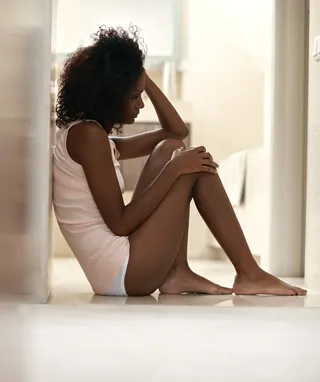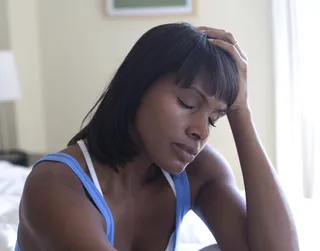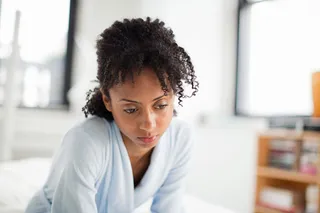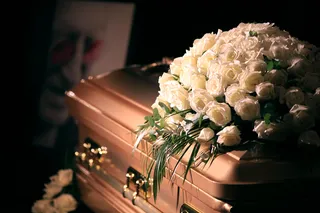Domestic Violence and African-Americans by the Numbers
A look at domestic violence in the Black community.

1 / 10
Domestic Violence and African-Americans - BET.com takes a look at how domestic violence affects the African-American community. — Dominique Zonyéé The National Domestic Hotline defines domestic violence as a pattern of behavior in any relationship that is used to gain or maintain power and control over an intimate partner. Contrary to popular belief, domestic violence includes physical, emotional, economic, sexual or psychological actions or threats.(Photo: Troels Graugaard/Getty Images)

2 / 10
Black Women Have the Greatest Risk - Black women have the greatest risk of experiencing domestic violence. In 2005, Black women represented 8 percent of the population, but accounted for 22 percent of intimate partner homicides.(Photo: laflor/Getty Images)
Photo By Photo: laflor/Getty Images

3 / 10
Teens and Domestic Violence - Domestic violence among African-American teens is twice the rate of white teens. A 2003 national study of high school students revealed that almost 14 percent of African-American compared to 7 percent of white youth reported that a partner hit or slapped them on purpose from 2002-2003. (Photo: Getty Images/Blend Images)

4 / 10
Black Men Are Victims, Too - Between 1993 and 1998, Black males experienced intimate partner violence at a rate about 62 percent higher than that of white males. This was also about 22 times the rate of men of other races, according to statistics from the American Bar Association's Committee on Domestic Violence.(Photo: Thinkstock Images/Getty Images)

5 / 10
Break-Ups to Make-Ups - Although 70 to 80 percent of Black women leave or attempt to leave a violent relationship, many Black women may find it harder to leave a battering relationship than white women. While reasons for staying in abusive relationships vary, many researchers attribute economic and social issues and lack of dependence on the police.(Photo: Getty Images)
ADVERTISEMENT

6 / 10
Outer Wounds - Approximately 40-50 percent of female victims are physically injured when assaulted by their intimate partner, accounting for over 200,000 visits to the hospital emergency room each year, according to the Feminist Majority Foundation.(Photo: Bruce Laurance/Getty Images)
Photo By Bruce Laurance/Getty Images

7 / 10
Domestic Violence Affects Mental Health - Women who were victims of domestic violence are more likely to develop a mental disorder at some point in their lifetimes. The U.S. Department of Health and Human Services in August 2012, changed the guidelines for preventative care, which requires all new health plans to offer no-cost domestic-violence screenings.(Photo: Image Source / Getty Images)
Photo By Photo: Image Source / Getty Images

8 / 10
Death by Spouse or Partner - Black women are about three times more likely to die at the hands of a partner or ex-partner than members of other racial groups. Intimate-partner homicide is also among the leading causes of death for black women ages 15 to 35.(Photo: Christopher Furlong/Getty Images)
Photo By Photo: Christopher Furlong/Getty Images

9 / 10
Signs of Abuse - There are various signs that you are in an abusive relationship. Those signs include an over-possessive partner who checks your cellphone, shows extreme jealousy or insecurities, has mood swings and constantly makes false accusations. For more signs of domestic violence visit here.(Photo: John Slater/Getty Images)
